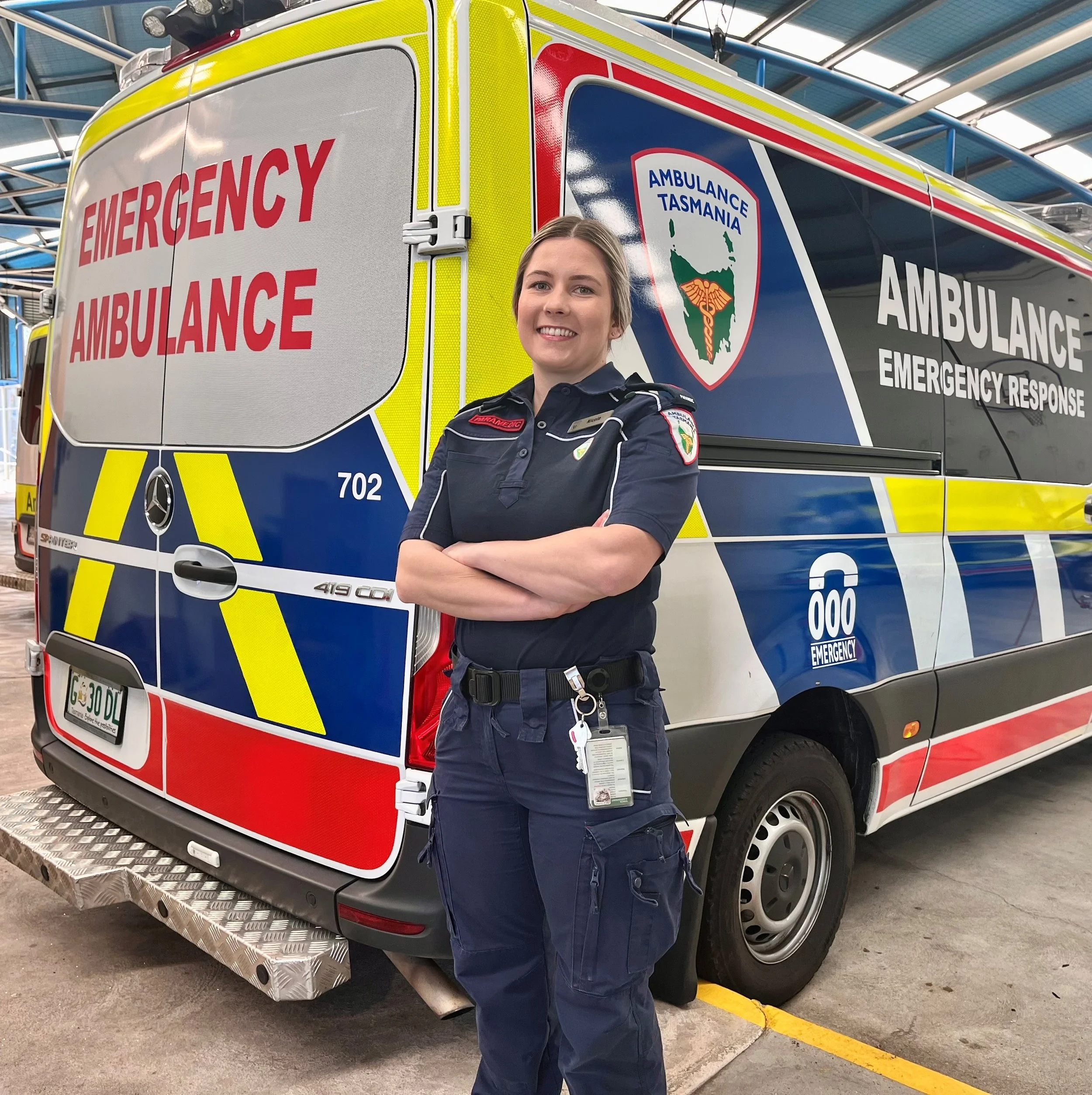A paramedic’s perspective on heart attacks
“If someone thinks they are experiencing a heart attack, they shouldn’t hesitate to call Triple Zero.”
Nicole Johnson
There is no such thing as a ‘typical’ day for a paramedic.
But in her in her four years with Ambulance Tasmania, Nicole Johnson has been called out to numerous cases of chest pain in Northern Tasmania.
In fact, it’s almost always a daily occurrence.
Often it is a heart attack. Sometimes it is something else. But for every patient, and the loved ones around them, it is always a scary experience.
Recognising the warning signs of a heart attack and calling Triple Zero (000) straight away can mean the difference between life and death.
A suspected heart attack is treated as a medical emergency because of the possible damage to a person’s heart and the risk of death.
However, too often people put off calling an ambulance because they are either unsure of their symptoms or they don’t think they’re at risk.
“Often we will go out to people who have put off calling us [Triple Zero] for so long,” Nicole explained.
“They’ll have chest pain and they will call us hours and hours later because they feel like they’re wasting our time or they think they don’t need an ambulance.
“But it’s really important that if they are having an of those symptoms that they call an ambulance straight away.”
A heart attack occurs when the heart is deprived of oxygen due to a blockage in one of the coronary arteries that supplies blood to the heart.
Early treatment can save a life and limit the amount of damage to your heart muscle, and the pre-hospital care provided by a paramedic plays a vital role in this process.
This includes the STEMI pathway, which involves restoring blood flow to the heart to reduce the risk of heart failure or death.
“Our role as a paramedic is to start the process of care. That sometimes involves medications that can slow the progression of a heart attack,” Nicole explained.
“Here in Ambulance Tasmania, we use a STEMI pathway.
“So, when someone is having a heart attack, it allows us to transmit a picture of an ECG – a tracing of their electrical activity of the heart.
“We can then notify the hospital we are going to, so they can start to get their resources prepared and allow the patient to get where they need to go, as quickly as possible.”
Nicole said if someone was experiencing the signs of a heart attack – including chest pain, dizziness, nausea, sweating or shortness of breath – then it was vital they get to hospital.
“If someone thinks they are experiencing a heart attack, then they shouldn’t hesitate to call Triple Zero,” she said.


